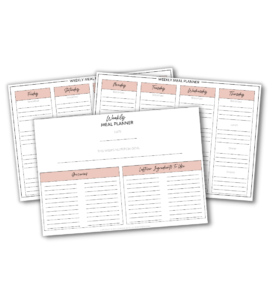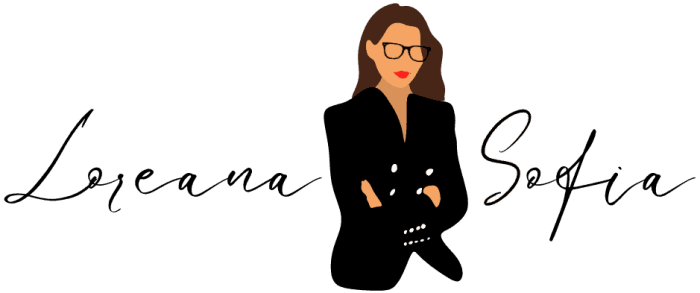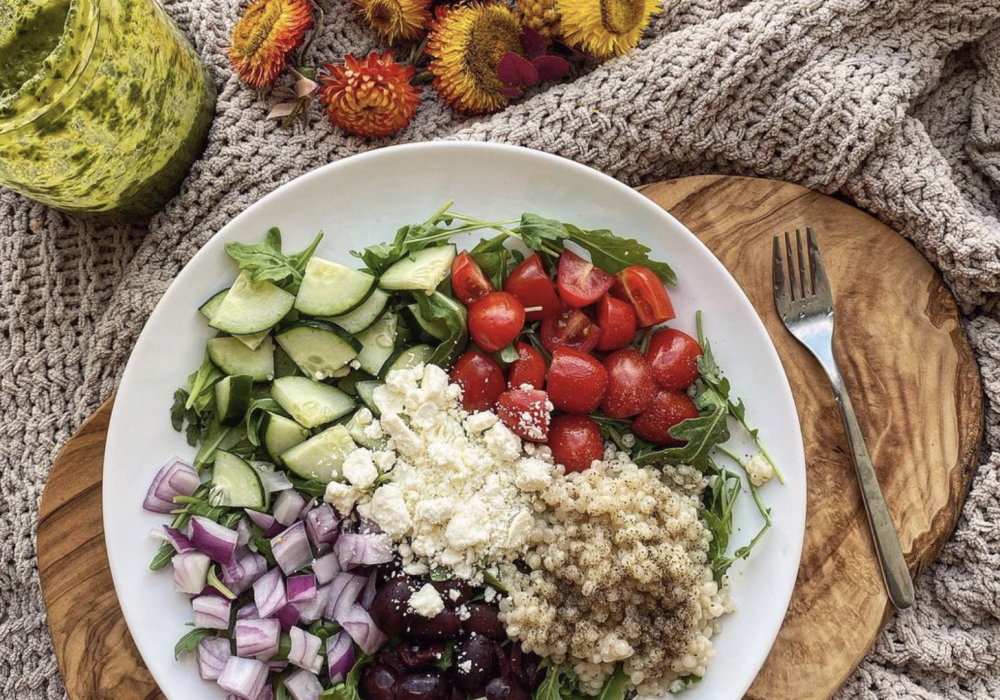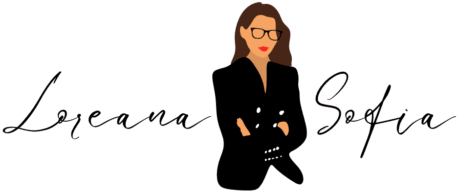These are the top 4 signs that you are working with a good nutritionist. You want to make SURE that someone who has such a big impact on your life is doing things the right way.

There is A LOT of information out there about what nutrition is about. Though the truth lies somewhere in the middle of all that, I know how confusing it can get.
I know that when I first started diving into all this, the information was so contradictory that I didn’t know how to help myself, much less help others. With time (and a lot of testing my theories out on myself and my family- oops), I was able to start to be able to differentiate the good, the useless and the evil.
Though there are a lot of theories about what is proper nutrition, I have assembled the top green flags in nutritionists. These signs are independent from the actual science, which is why they apply to any nutritionist.
If you are working with a nutritionist, you KNOW how big of an impact they have on your life. So this blog will help you see if your nutritionist is doing things the best way for you.
This blog post is all about the top signs that you should look out for in a good nutritionist!
SIGNS OF A GOOD NUTRITIONIST
1. Before recommending any change, a good nutritionist will understand what your habits have been like in the past
Your eating patterns and your daily life will tell us a lot about how your body functions today. Without properly understanding what your body has been used to in terms of movement, eating and resting, a proper nutritionist cannot help you. I’m sure you’ve read this everywhere, but nutrition is NOT a one-size-fits-all approach.
Through a complex system, your body is always looking to reach homeostasis: in simple terms, homeostasis is the state in which your body has perfectly adapted to what it has to go through. In other words, your body will strive to perfectly suit whatever it is that you put it through continuously.
Let me take an example that has been drilled into my head by my mother, an ocular oncologist. Most youth today need glasses because they are myopic (can’t see well from far away). Why? Because due to how we grow up, with phone screens, computer screen and books just inches away from our eyes, we have lost the need to see clearly from afar. Think about it, when was the last time that you really needed to see something that was really far away?
My mother also works with indigenous tribes in northern Canada. What she notices there is that nearly no one needs myopic glasses. These tribes are used to hunting, and looking for animals who are large distances away. They need to make out the smallest of movements in the forest. These tribes don’t have myopia, they have hyperopia- they cannot clearly see small details such as words in a book. Their day-to-day doesn’t rely on screens and books, it relies on seeing something far away.
Essentially, your body adapts to what you make it go through over and over again.
Example
Client A & Client B
Client A
- Wants to lose weight
- Has been putting themselves on a terribly low-calorie diet, whereby they were eating only 1200 calories per day for the past 3 years.
In this case, homeostasis has strived to be okay with only 1200 calories a day. This means that it has strived to neither lose nor gain weight at 1200 calories. (Please note that no adult human should be eating as little as 1200 calories a day. This is just for the sake of this example.)
Client B
- Also wants to lose weight
- Has been eating consistently around 2300 calories a day for the past 3 years.
Their homeostasis has strived to neither lose nor gain weight at 2300 calories.
If a nutritionist had not taken the time to figure this out, then they might have put both of these clients on, say, 1800 calories per day. How do you think this would have played out?
Client A, due to being at homeostasis at 1200 calories would be gaining weight! And Client B, who is at homeostasis at 2300 calories would indeed be losing weight, but far too quickly and at an unhealthy rate. (Rule of thumb is losing about 0.5-1 lb per week, or about 300-500 calories.)
What Client A would have needed is a reverse diet, whereby the nutritionist would have to slowly bring their calories up, to reach a homeostasis level that is appropriate for their age and physique.
On the flip side, what Client B would have needed is a diet of 2000 calories a day, which would have safely made them lose weight.
For the purpose of this example, Client A and B are highly simplified, and we assume that calories are the only thing affecting homeostasis.
Obviously, in real life, much more goes into figuring out what’s right for you. The elements that nutritionists must also look at include: what type of foods you are used to eating, what type of exercise you in the habit of doing, what type of stress your body is under, what your family situation is like, what macronutrients you are low on… and the list goes on.
Remember: a nutritionist is here to help you achieve a health goal, not to flip your life on its head.
Let’s take Client A and Client B again. Let’s say that Client A is a medical student in her 3rd year of internship: sporadic schedules, unknown sleeping patterns, and limited access to money. Now let’s take client B: recent university graduate, just started her 9-5 job as a secretary, and is single. The way in which is nutritionist should tackle these two clients is entirely different. DAILY LIFE AND HABITS MATTER MOST.
So how can a nutritionist understand your habits? There are many ways, and none of them are perfect. It’s about collecting as much information as they can and parsing through it. Maybe they could ask you to track what you eat for 1 week, without their intervention in what choices to make. Maybe it is a list of questions you have to fill out. The point is that they HAVE to have a good background as to what your life was like before they entered it.
Now, you might be telling to yourself: “but Loreana, having one week of tracking your meals or answering a few questions cannot possibly give a nutritionist a good picture as to how your body reacts.” You are correct, it’ll only provide a starting point. This brings me to my second point.

Want a free
WEEKLY MEAL PLANNER?
Get organized and plan your meals with this Weekly Meal Planner. Fill out the form below and have the Weekly Meal Planner delivered straight to your inbox!
2. A good nutritionist will change your nutrition plan quite a lot during the first few weeks.
Think of working with a nutritionist like looking to buy a house: the nutritionist is the buyer and you are the house. For the first session, the nutritionist goes to a realtor and asks questions. What year was this house built? What type of energy does it run on? How much garden space does it have? How many floors does it have? What treatment is best for the wood in the living room? It’s an initial get-to-know-the-house, without ever visiting the house.
Now think of the next 4/5 sessions with your nutritionist like the buyer suddenly moving into the house without ever having visited it before. The nutritionist brings their suitcases, maybe some furniture… it has a way in which they want the house to be organized.
But then they see that certain parts of the house aren’t like they thought they would be. It has a lot more natural sunlight than they thought, yay! But the water doesn’t run well when the tap and the shower are on at the same time. Certain electricity plugs don’t work. The product they used to clean the wood near the fireplace ends up harming it.
Essentially, some things work fine but there are some kinks to work out, none of which was revealed during the first set of questions.
Now think of the rest of the sessions with your nutritionist like the next years of the buyer living in the house. They’ve gotten to know the ins and outs of the house.
They know that if too many plates are stacked on one cabinet shelf, it will fall through. They know that one perfect shower temperature. They found the products that will make the wood look glossy. They even found a secret attic. They’ve lived in that house for so long, they even know which loose floorboard can be used as a hiding spot.
Nothing of that last step would have been possible without the first two parts. Just like getting to know a house properly, working with a nutritionist is a long-term thing. And the initial step of moving in will be hard, and there will be many bumps along the way.
What I’m saying is that it is normal (and expected) for nutrition plans to change in the first few weeks of working with a good nutritionist. This is not because the nutritionist doesn’t know what they are doing, but rather that are still learning to read you and to interpret your body’s reactions. Our bodies don’t come with an instructions manual!
Now, add to this the fact that when the nutritionist first assessed you, your answers to their questions weren’t entirely true (whether you wanted to or not). During that initial conversation, the nutritionist is trying to paint a picture of what your life is like… but the painting will be wrong in certain places, leading them to understand your life differently than what it actually is. Maybe you don’t want to tell them that you eat a tub of ice cream each night. It’s normal. Or maybe you genuinely think you eat 2000 calories a day, but you actually eat 2600.
These are the things that nutritionists have to keep in mind: they get input, but they can’t be sure that it’s true. Luckily, our bodies tend to reveal what the truth is over time. The truth will out every single time.
So, it is normal, and very much expected that the first few weeks will be a lot of change, wanting to get to what your body really needs according to your goals. This bring me onto the next point:
Nutrition Coaching
Train hard. Eat well. Build your body one day at a time.
Train hard. Eat well.
Build your body one day at a time.
1-to-1 coaching. A sustainable nutrition plan. A lifetime of knowledge.
3. A good nutritionist checks in with you at least once a week
In order to be able to correctly change your plan, they need to look out for the signs that something is going in the right or wrong direction. They need to know what your life was like in the past week and what it will be like in the following week to see if there are any tweaks to be made to your plan. It’s all in the spirit to best adapt to your needs.
Example
Good nutritionists need to know about last week
Let’s say that you were doing just fine, but one night you lost it and ate everything out of your fridge.
The nutritionist needs to assess whether this was because the calories you have been eating are far too low for your body, or because you had a particularly stressful day at work and this was your way of coping with it.
Whatever the answer is, adjustments must be made.
If it’s because the calories were too low
- A good nutritionist will increase the calories that you eat.
- The late-night binge was a sign from your body telling you that it wasn’t eating enough food for too long
If it’s because of a singled-out stressful day
- The calories can remain the same.
- However, if the client foresees that the stressful day will last for a whole week (maybe they have to meet a big deadline at work), then the nutritionist should bring up the calories for that week.
- A good nutritionist shouldn’t want the client to stress about what they eat that week as there is now another important stressor.
A nutritionist also needs to know what’s coming up next.
- Is a client’s period going to start?
- Are they traveling next week?
- Are they going to attend a big party, where odds are they will be drinking alcohol and eating off-plan?
- Do they foresee anything in the upcoming week that could disrupt their daily habits?
Note that this isn’t a bad thing. Having unexpected events is part of life’s gifts. But the plan should change according to that.
See how the questions above were not quantitative, but rather qualitative? A good nutritionist knows that it isn’t all about the number on the scale, or the number of calories eaten. They use a wide range of tools to understand your situation.
This brings me to my final point:
4. A good nutritionist builds a plan that makes you happy
I’m probably not the first to tell you that you should RUN FOR THE HILLS if you get a plan that makes you eat 1200 calories a day (or anything in that range).
But let me tell you the following: if the plan makes you think “I cannot sustain this”, or “damn, I’ll have to cut out [insert food here] that I really love” or “I’ll have to cancel date night”, RUN FOR THE HILLS. No buts, no exceptions.
The only foods you should be counting out are those that you are allergic to or those that you don’t like. That’s. It.
A plan should complement your life, not make you change it drastically. Don’t get me wrong, some change is to be expected. It’s the whole point of a nutritionist. But not change that is hard to cope with.
Trust your gut feeling. It’s generally right for these kinds of things.
Those are my top suggestions to you. Should you have any more questions, please let me know and I’ll be happy to answer!
This post was all about the signs that you are working with a good nutritionist.
xx LS
Share this post








